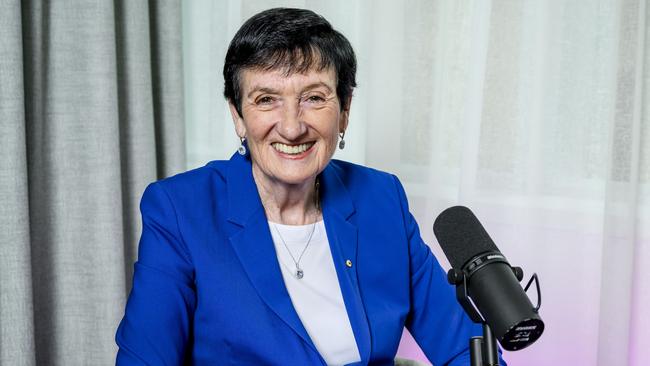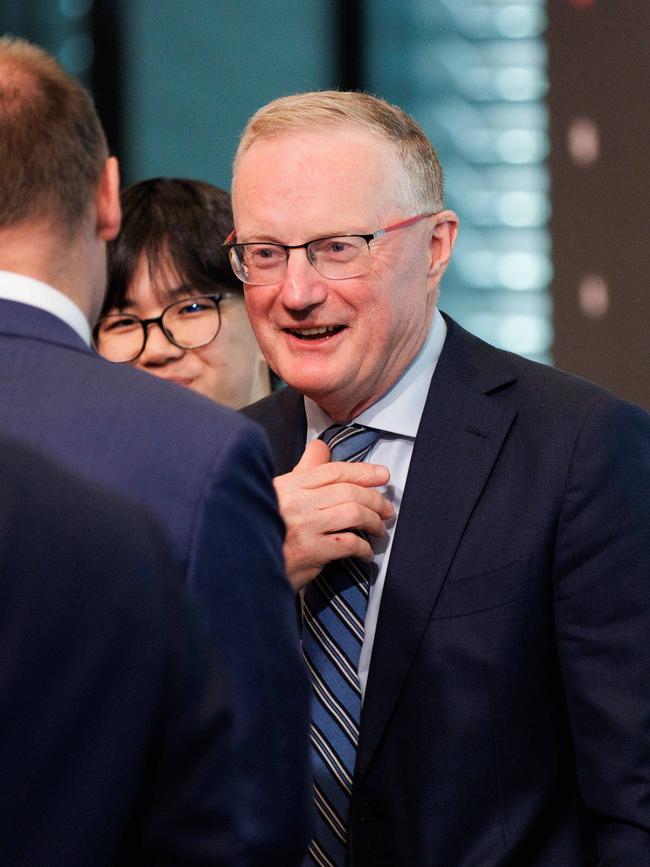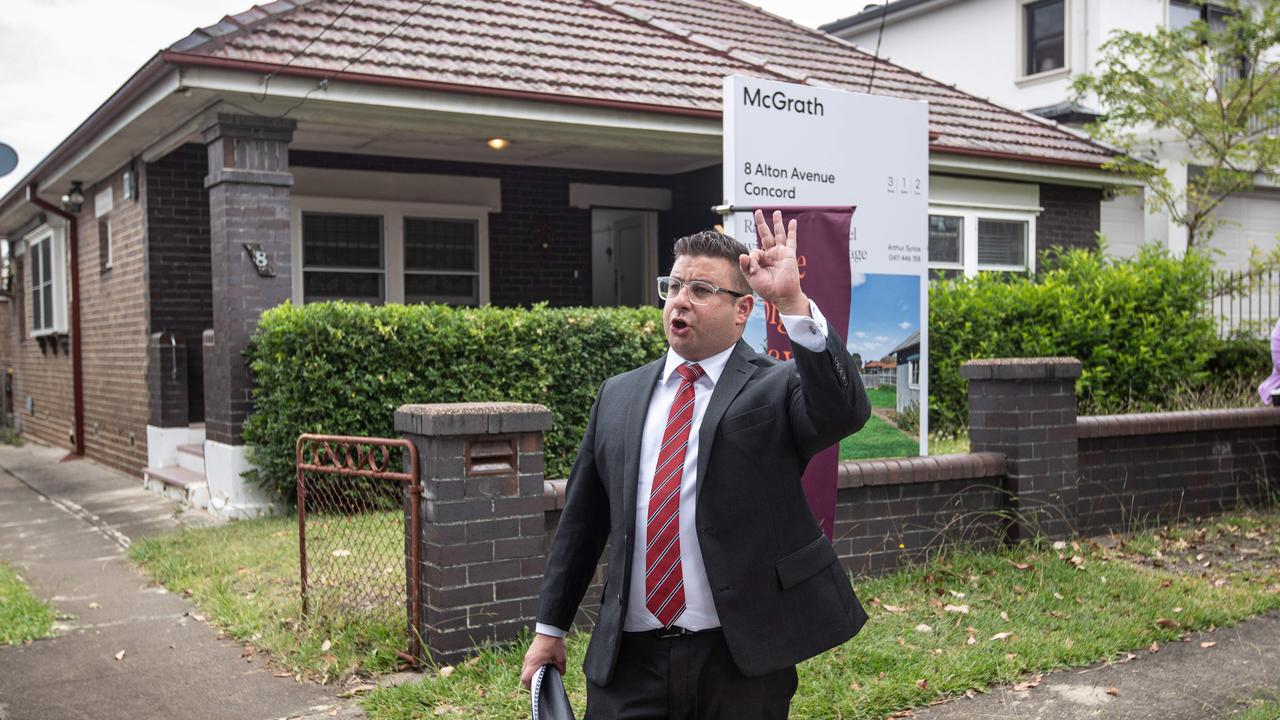Working Aussies ‘can’t see the light’, warns Westacott
Politicians need to urgently recalibrate their public messaging to make it more relevant to working Australians, according to one of the nation’s leading businesswomen.

Politicians need to urgently recalibrate their public messaging to make it more relevant to working Australians and give them hope for the future, or risk being punished at the ballot box, according to one of the nation’s leading businesswomen.
Future Generation Global chair and former Business Council of Australia chief executive Jennifer Westacott, who is now a member of the new Reserve Bank governance board, said a growing number of professionals, middle and low-income earners “just can’t see the light” in Australia.
“They cannot see how they’re going to get ahead. They can’t see how that mortgage is going to get paid. They can’t see how their bills are going to get paid. They can’t find a pathway to get their kids the things that they want for them in life. Yet they say to themselves, I’m working super-hard,” Ms Westacott said in a new Future Generation podcast to be released on Monday.
While she said the forces in middle America that returned US President Donald Trump to office were less likely to dictate an election outcome in Australia, because of the nation’s strong social security system, middle Australia still had a powerful voice.
“There are many people today who wake up in the morning, they’re going to work, they’re travelling long distances, they’re getting home at night and they’re exhausted. Their weekends are just taken up with functioning, not living. The conversations we often have are not conversations that are relevant to them,” she said. “We’ve got to get back on track about thinking about those middle and working people and giving them hope, getting the policy settings right so that they do actually have hope. Being more empathetic to the fact that they feel very frustrated. They feel the kind of conversation that happens in the major cities does not speak to them.”

Her comments came as Opposition Leader Peter Dutton was forced to ditch his proposal to crack down on working from home in the public service — a policy enacted by the Trump administration in January — fearing being seen as Australia’s version of Mr Trump.
The policy backflip came after a number of Liberal MPs confirmed there had been significant backlash from their local constituents over the party’s intention to limit work-from-home arrangements and reduce the size of the public service.
During the election campaign Labor has been seeking to link the Coalition leader and the US Republican President.
Liberal strategists are hoping Mr Dutton’s policy change will increase the likelihood of mining magnate Clive Palmer’s Trumpet of Patriots party suffering more of the electoral backlash over fears of Donald Trump’s policies coming to Australia.
In the podcast with FGG chief executive Caroline Gurney, Ms Westacott also warned of a global capital flight to the US, and risks in Australia’s comparative tax settings.
“The last person to really tackle tax reform was John Howard,” she said. “Malcolm Turnbull had a very, very good tax plan in my view. But of course, politics really got in the way of it.
“Donald Trump will lower the corporate tax rate to 15 per cent. He will get that done. He got it done last time down to 21 per cent. The economy really took off.
“Investment will flow back into the United States because if you’re a company and you’ve got duties to your shareholders for returns, you’re going to put your money where – as you should, that is your responsibility plus (it) gets the greatest return.
“And we should be watching that with a great deal of concern and looking at our own competitive settings about whether or not we’ve got enough investment driving productivity, which drives wage growth.”
Ms Westacott also lamented the lack of civility in modern public policy debate, which discouraged people from throwing up ideas for fear of being shot down or given a label.
“That’s a very dangerous place to get good policy work done. You’ve got to be able to say, ‘Well, what about this and what about that?’ We used to have green papers and white papers, and we got big issues solved that way. We don’t do that anymore,” she said.
“But what I want really to implore people to do is to not take things off the table in a way that then haunts them in politics where they say, ‘You’re never going to do that.’ To say, ‘Well, let’s look at that, let’s have a think about that.’ People will say that is naive and maybe it is, but I think that it is the right thing to do for the country.”
She said proper public debates were essential on issues such as tax reform, education, skilling the population and fixing the housing crisis to drive productivity and raise living standards and wages.
“I’m worried we are not ready for the artificial intelligence revolution and that we are kind of frightened about it as opposed to running hard at it, grabbing it, and making it work for society,” Ms Westacott said.
“I'm also really very worried that our population isn’t skilled enough. I’m worried that we are falling behind in our schooling standards.” She also criticised the ongoing false divide between TAFEs and universities.
“Get people more vocationally focused because all of those great opportunities around manufacturing and economic diversification won’t happen if our population isn’t skilled enough to grab those and run with them,” she said.
Last year Ms Westacott, who is also chancellor, broke with fellow chancellors and explicitly condemned anti-Semitism during Gaza protests on Australian campuses. In the FGG podcast, she reiterated that “hate speech” had no place in universities, which needed to be the source of enlightenment, knowledge and a forum for the contest of ideas in society. “The expression ‘From the rivers to the sea, Palestine will be free’, is about removing people from the Jewish state. There’s nothing in my view that is kind of grey in that area. That is a direct assault on the right of Jewish people to occupy Israel,” she said.
“Now, I think anybody looking at that with common sense says, ‘Hey, that’s not free speech. That’s hate speech.’ That’s designed to intimidate. It’s designed to belittle. It’s designed to humiliate people. It’s designed to threaten people, versus the legitimate contest of ideas about a very complex set of issues in the Middle East or frankly anywhere in the world. So I think when people denigrate, when they intimidate, when they humiliate, that is not free speech.” She said it was up to society to take a stronger stand against anti-Semitism. “We should have exactly the same reaction if Muslim people were attacked for being Muslims. I would be as equally outraged. I look after my family; I would stand in front of a bus for them. I would do anything for them, to protect them. If they were under attack for their heritage and their background, I would defend them to the death. Same with attacks on homosexuals. All of these things create a very un-cohesive and dangerous society,” she said.
Ms Westacott has previously revealed she has been in a same-sex relationship for over three decades, and the challenges it presented for her working in corporate Australia and in the public service.
“If you keep turning a blind eye to these things, be careful what you wish for because you will be next on that list. We just can’t allow people to think that saying these things about people in these cruel and very, very, very intimidating ways is not hate speech,” she said.
“Universities should stop it and my University has taken a very hard line on this. As a society, we should just say, ‘No, we won’t put up with this’.

Future Generation Global Australia and Future Generation Australia — the latter chaired by former RBA governor Philip Lowe — are listed investment companies that waive their management fees and donate 1 per cent of their assets to youth-focused charities.
Since 2014 the Future Generation Group has donated $87.2m to charities while giving 1 per cent per cent of its assets annually to not-for-profits.






To join the conversation, please log in. Don't have an account? Register
Join the conversation, you are commenting as Logout